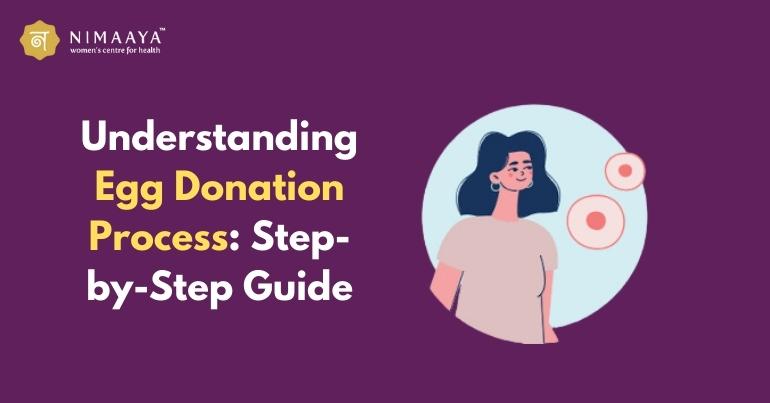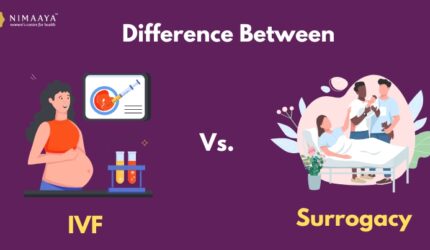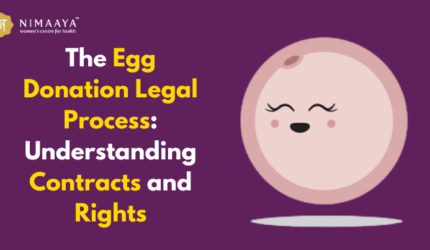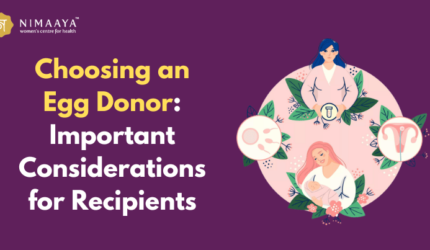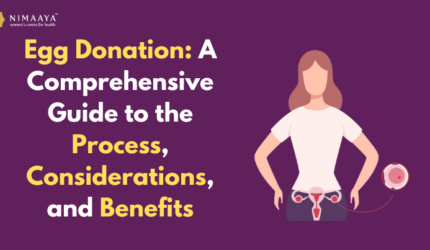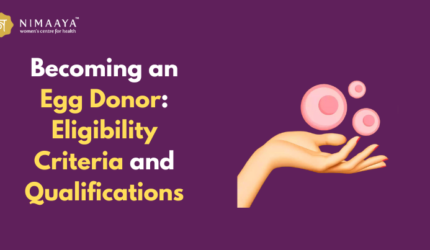Introduction:
Bringing a child into this world can be one of life’s most beautiful and fulfilling experiences. However, for some individuals and couples, the path to parenthood may not be as straightforward as they hope. In such cases, assisted reproductive technologies like in vitro fertilization (IVF) with donor eggs offer a glimmer of hope. This is where the egg donation process comes into play.
If you find yourself on the journey towards parenthood and are considering egg donation as an option, you’re in the right place. In this comprehensive guide, we’ll walk you through the step-by-step process of egg donation, demystify the associated risks, discuss the timeline, cost, requirements, and much more. We aim to provide you with the information you need to make an informed decision and embark on this extraordinary journey.
So, let’s dive into the intriguing world of egg donation and explore what it entails.
1) The Initial Screening Process
The egg donation process begins with an initial screening. At this stage, potential egg donors are evaluated for their suitability. Here’s what you can expect during this phase: Medical and Genetic History, Physical Examination, Blood Tests, and Psychological Evaluation. You’ll be required to provide a detailed medical and genetic history. This is crucial as it helps determine whether there are any hereditary conditions that could affect the potential child. Expect a thorough physical examination. This helps assess your overall health and fitness for the procedure. Blood tests are conducted to check for various health markers, including infectious diseases and hormone levels. These tests help in determining your reproductive health. You’ll undergo a psychological evaluation to ensure you are emotionally prepared for the process. It’s vital to ensure that you can handle the emotional aspects of egg donation.
2) Ovarian Stimulation
Once you pass the initial screening, you move on to the ovarian stimulation phase. This is a crucial step in the egg donation process, as it involves preparing your body for egg retrieval.
Once deemed eligible for the process, the donor embarks on the phase of ovarian stimulation, a pivotal step in maximizing the yield of viable eggs for retrieval. This phase typically involves the administration of hormonal medications, carefully tailored to stimulate the development of multiple follicles within the ovaries. Regular monitoring, comprising ultrasound scans and hormone level assessments, is imperative to track follicular growth and ensure the optimal timing for the subsequent stages of the process. At Nimaaya IVF Center, a dedicated team of fertility specialists orchestrates this delicate balance between hormone regulation and follicular development, orchestrating a personalized approach to each donor’s unique physiological response.
3) Egg Retrieval Procedure:
The culmination of the ovarian stimulation phase culminates in the highly anticipated egg retrieval procedure, a pivotal moment that demands precision and expertise. Under the guidance of experienced reproductive endocrinologists and skilled embryologists, the donor undergoes a minimally invasive surgical procedure, typically performed under sedation or anesthesia to minimize discomfort. Using ultrasound guidance, a thin needle is delicately inserted into the ovaries to extract the matured eggs from the follicles. This delicate process, conducted in a meticulously controlled environment at Nimaaya IVF Center, prioritizes the donor’s safety and well-being, underscoring the center’s commitment to ensuring a seamless and secure experience for all donors.
4) Egg Donation
Egg Donation, After the successful retrieval of your eggs, they are donated to the intended recipient or couples seeking assistance with fertility. Your eggs will be used in an IVF process. The IVF procedure involves fertilizing your donated eggs with sperm, either from the recipient’s partner or from a sperm donor, in a controlled laboratory environment. This step marks the beginning of an exciting journey toward conception, as the fertilized embryos are closely monitored for their growth and development.
Once the embryologists determine that the embryos are of sufficient quality and have reached the desired stage of development, they are ready for transfer into the recipient’s uterus. This momentous event, known as embryo transfer, is a critical step in the IVF process and holds the promise of bringing dreams of parenthood to fruition.
5) Egg Donation Process Timeline
The entire egg donation process can vary in duration. From the initial screening to egg retrieval, it typically spans a few months. It’s important to keep in mind that the timeline can be influenced by factors like your menstrual cycle and the recipient’s readiness for IVF.
Also Read: Egg Donation: A Comprehensive Guide to the Process, Considerations, and Benefits
6) Understanding IVF with Donor Eggs
IVF with donor eggs involves fertilizing your donated eggs with sperm in a laboratory setting. The embryos that arise are subsequently transferred to the recipient’s uterus. Here’s how the process unfolds:
-
Sperm Collection:
The intended father or a sperm donor provides a sperm sample, which is then used to fertilize the donated eggs.
-
Embryo Culture:
The fertilized eggs are cultured in a laboratory for a few days to develop into embryos.
-
Embryo Transfer:
The healthiest embryos are transferred into the recipient’s uterus, where they have the potential to implant and develop into a pregnancy.
Egg Donation Process Costs
The cost of the egg donation process can also vary. Factors like the location of the fertility clinic, the extent of insurance coverage, and whether you work with an agency or a private donor can all influence the overall cost. On average, the egg donation process can range from 2 to 2.2 lakhs or more.
Is Egg Donation Painful, and Are There Risks?
While the egg donation process may cause some discomfort, it is generally not painful. Most women experience mild cramping, bloating, and discomfort, which can be managed with over-the-counter pain relief. As for risks, it’s important to be aware of potential complications such as infection, bleeding, and ovarian hyperstimulation syndrome (OHSS). However, with proper medical care and monitoring, these risks are minimized.
Egg Donation Disqualifiers and Requirements
Not everyone is qualified to donate eggs. There are specific disqualifiers and requirements in place to ensure the safety and success of the process. Some common disqualifiers include:
- Age: Egg donors are typically between 21 and 32 years old.
- Smoking and substance abuse: These are usually disqualifiers.
- Certain medical conditions or a family history of certain genetic disorders.
- Irregular menstrual cycles or conditions that affect fertility.
- On the flip side, common requirements for egg donors may include:
- Good physical and mental health.
- Willingness to undergo the egg donation process.
- Commitment to adhering to the medical and psychological evaluations.
Egg Donation Price: What Are the Factors?
The cost of egg donation varies according to a number of factors. Some key considerations that can influence the price include:
- Geographic Location: The cost of egg donation can differ significantly depending on the country or region.
- Agency vs. Private Donation: Working with an agency may come with additional fees, whereas private donation can be more cost-effective.
- Legal and Psychological Counseling: These services may also add to the overall cost.
Egg Donation Risks: What You Need to Know
While the egg donation process is generally safe, there are some risks involved. These may include:
- Ovarian Hyperstimulation Syndrome (OHSS): This condition can occur as a result of the fertility medications used during the egg donation process. It may cause abdominal pain, bloating, and discomfort.
- Infection: There’s a slight risk of infection associated with the egg retrieval procedure.
- Bleeding: In rare cases, bleeding can occur during the egg retrieval process.
It’s essential to understand these risks and discuss them thoroughly with your medical team.
Nimaaya IVF Center
For those seeking expert guidance and assistance with the egg donation process, Nimaaya IVF Center is a renowned institution in the field of assisted reproductive technologies. They provide personalized care and support to egg donors and intended parents throughout the entire journey.
Conclusion:-
In conclusion, the egg donation process is a remarkable and compassionate way to help others achieve their dream of parenthood. It offers a sense of fulfillment and purpose that’s hard to match. If you’re considering becoming an egg donor, understanding the step-by-step process, associated risks, costs, and requirements is essential.
Remember that your decision to become an egg donor can bring immense joy and hope to others. It’s a selfless act of kindness that can change lives and create families. So, take the time to explore this incredible journey and consider the positive impact you can make through egg donation.
Whether you’re motivated by empathy, altruism, or a desire to contribute to scientific progress, the egg donation process can be a life-changing experience for both you and the intended parents. Embrace the journey with open arms with the help of Nimaaya and make a difference in the lives of those who long for the precious gift of a child.

